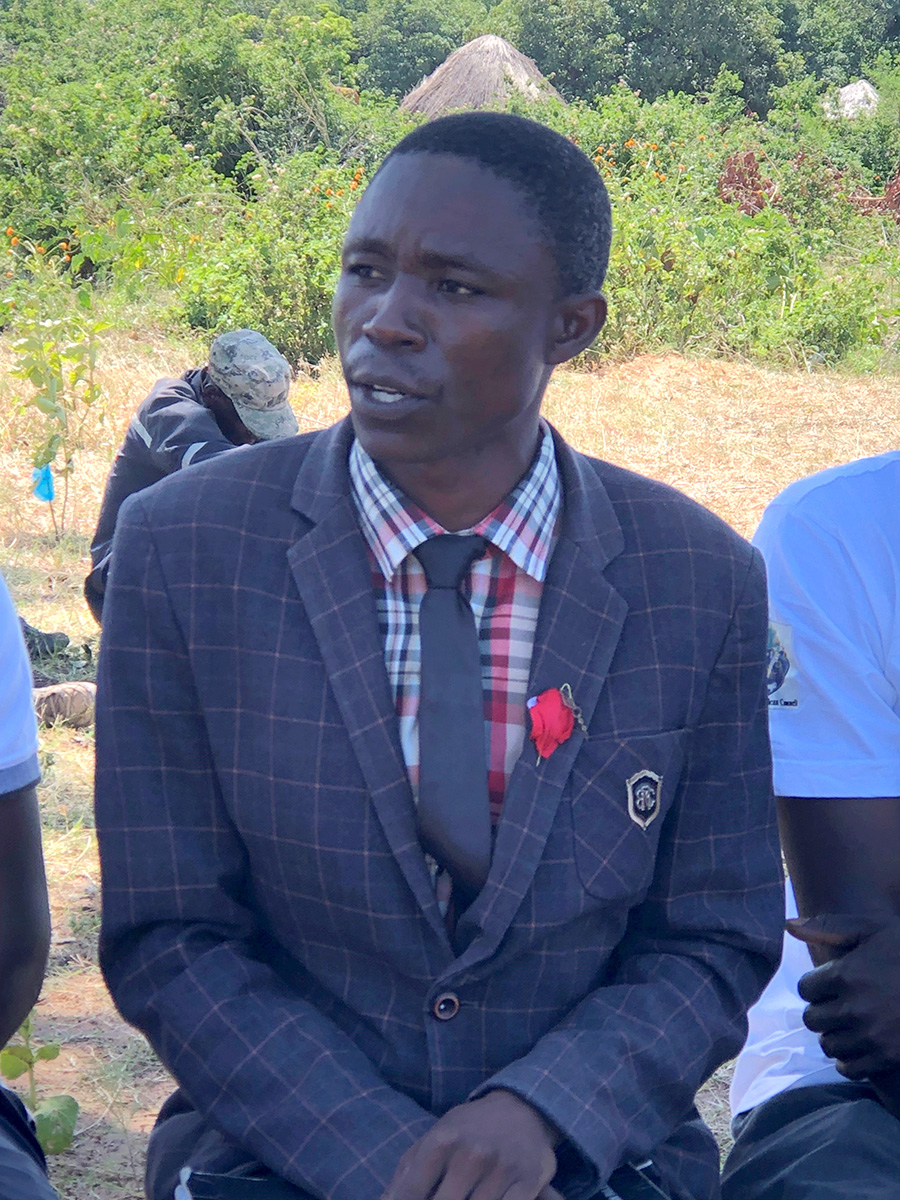Traditional village leaders at the forefront of Zambian gender program
We are holding hands together – how a remote community in Zambia is creating peace by ending gender-based violence and embracing education.
Kalwani village senior headwoman, Joyce Banda, wants to improve the peace and well-being of the five villages that make up her village in Zambia’s Eastern Province. A traditional leader, chosen as senior headwoman of the five villages when her brother died, Joyce has welcomed the Gender Equality project brought by Zambia Anglican Council Outreach Programme, with support from ABM AID, and implemented by Eastern Diocese.
“There are practices in our traditions which are harmful to women and girls. For example, when a woman dies, her family would always give one of their young girls to the widower as compensation for losing his wife because they want the man’s property to stay in their family. During the puberty rites for a girl, men would often come and take some of the girls and abuse them. This kind of thing also often contributed to the spread HIV among our people.
“With the coming of the Gender project, and the work of the Gender Action Group (GAG), these practices have stopped”, Joyce explained.
The Gender Action Group is a group of volunteers working on the project. It comprises 15 members of the local village (roughly equal numbers of women and men) who are trained to sensitise the community on issues related to gender – GBV, harmful traditional practices, and drug and alcohol addictions which can lead to violence. Some are also trained as psycho-social counsellors and provide counselling services to GBV survivors and perpetrators as well as people affected by drug and alcohol addictions.
Joyce said, “I find that since the GAGs started their work in our community, I am no longer being woken up in the middle of the night and asked to solve domestic disputes. The GAG members can help resolve conflicts. They work very hard, and they work with us traditional leaders.”
“We are holding hands together.”
Kalwani is a traditional Zambian village of grass and thatched round houses and food gardens which is 20 km away from facilities like a police station. Even the local primary school and clinic are a considerable distance away. The only form of transport is either foot or bicycle.
Another of the headman, Mr White Njovu of Kena, said, “Before the project, things in Kalwani were not all right, but when people started getting sensitised about gender it led to changes. There has been a reduction in domestic violence in some homes, early marriages, and teen pregnancies generally. Violent behaviours that perpetuate GBV in the community have also reduced. We have learned that we need to keep our children at school until they finish, and not take them out early to marry them off.”
Emmanuel Banda, who heads the local clinic, confirms this. “We have recorded a reduction in incidences of fighting in the home – from 10 cases each week down to 2.”
The project has also led to improvements in education.
Joyce said, “One of the things we have done together since the project began is to re-invigorate our community school, right here in the village. We had built two classrooms as a community, but we had not begun using it as a school until they brought the project. Now it is operating and goes from grades 1 to 3. I, myself, am in grade 2. Along with 10 other men and women, I am learning to read and write. Once the project came, many of us adults realised we needed to be able to read and write, and so we have enrolled.”
The school’s teacher is one of the GAG members, but Kalwani community is asking the local government to send a qualified teacher and to help them expand the school.
The community leaders are so happy with the way the project is going in their own villages, they are keen to share their skills and experiences with those in the neighbouring village.
When asked what motivated them to participate in the Gender project, the village leaders all agreed with the local primary school head teacher, Stephen Phiri, who said, “We are motivated by the desire for peace in the community.”
ABM AID thanks our partner, Zambia Anglican Council Outreach Programme (ZACOP) and the Anglican Diocese of Eastern Zambia, for their inspiring commitment to ending gender-based violence in Zambia and building gender equality. We also thank the Australian AID program, through the ANCP, for their financial support.
Finally, we are deeply grateful to you, our supporters, for your prayers and support of this important project which is bringing real peace to families and villages in Zambia.
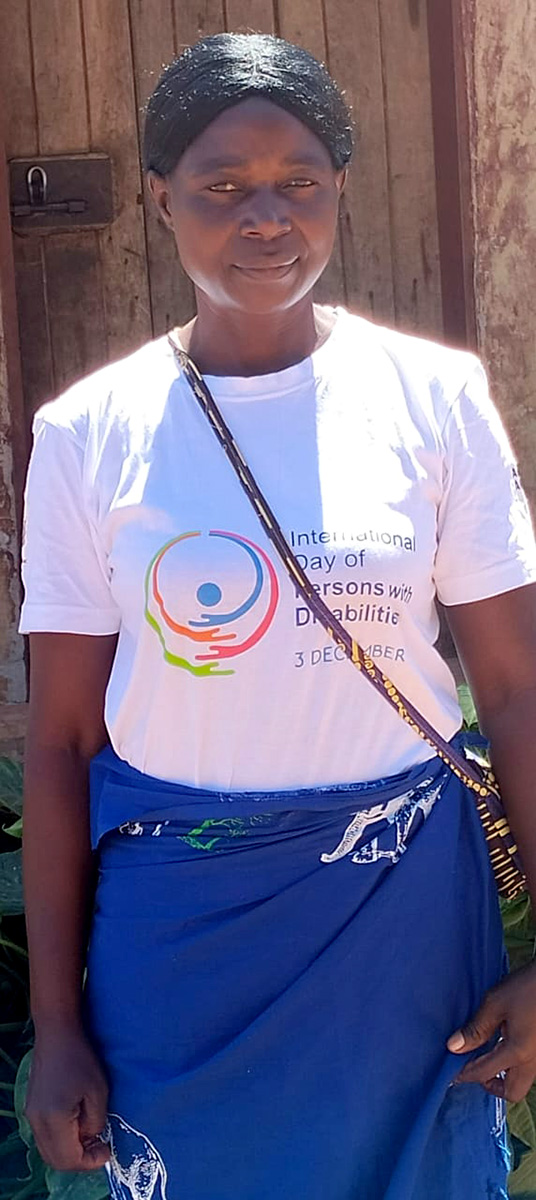
Joyce Banda, senior village headwoman, Kalwani village. © ZACOP. Used with permission.
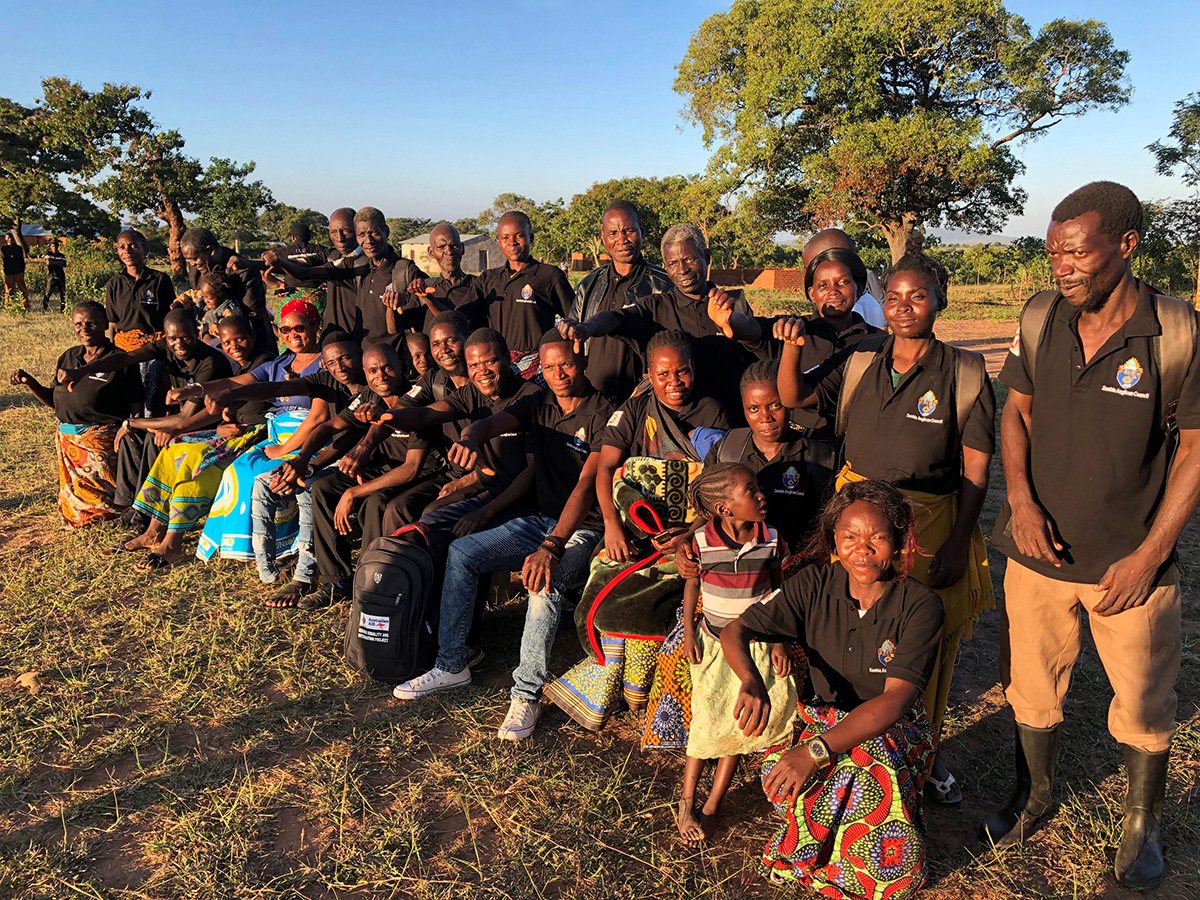
Kalwani Gender Action Group gives the thumbs down to gender-based violence.
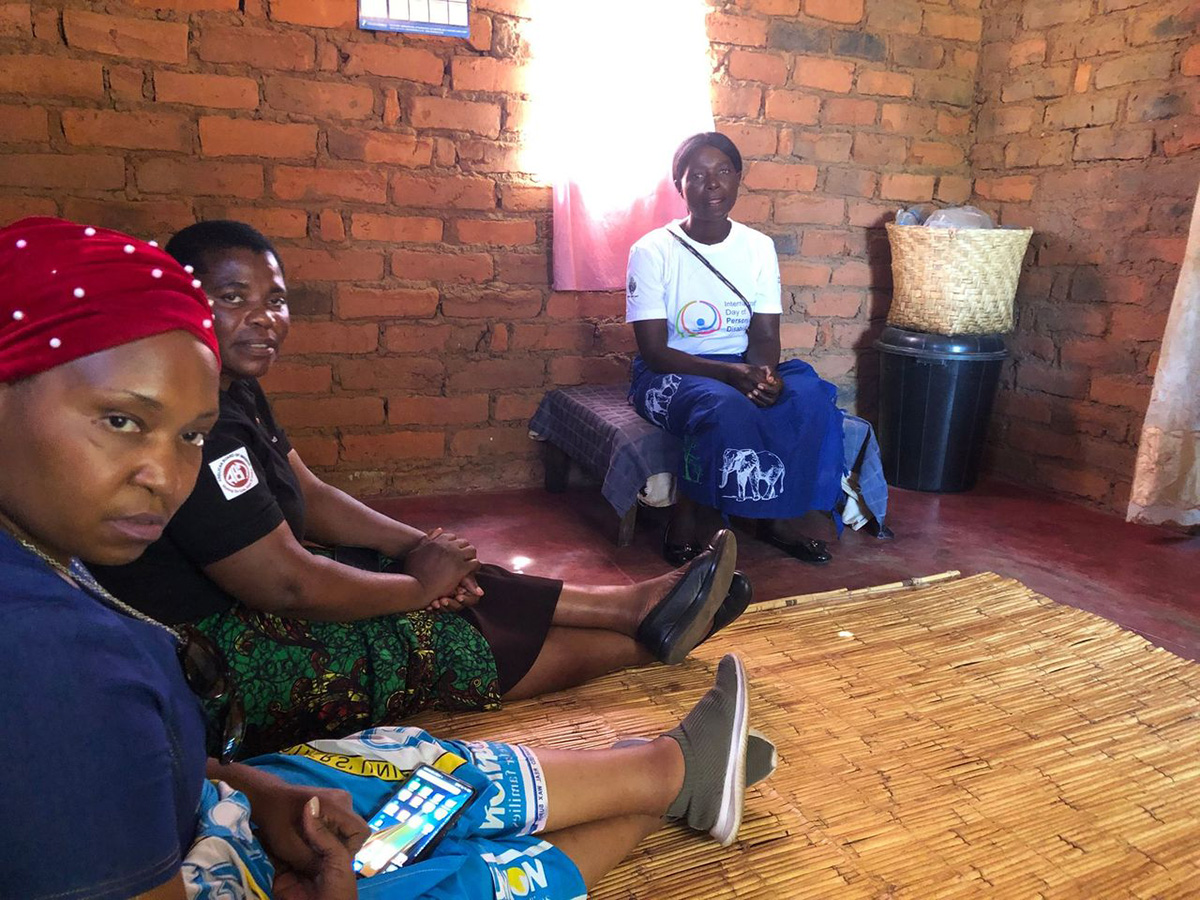
ZACOP program team meets with senior headwoman, Joyce, in her meeting room. © ABM AID/Julianne Stewart.
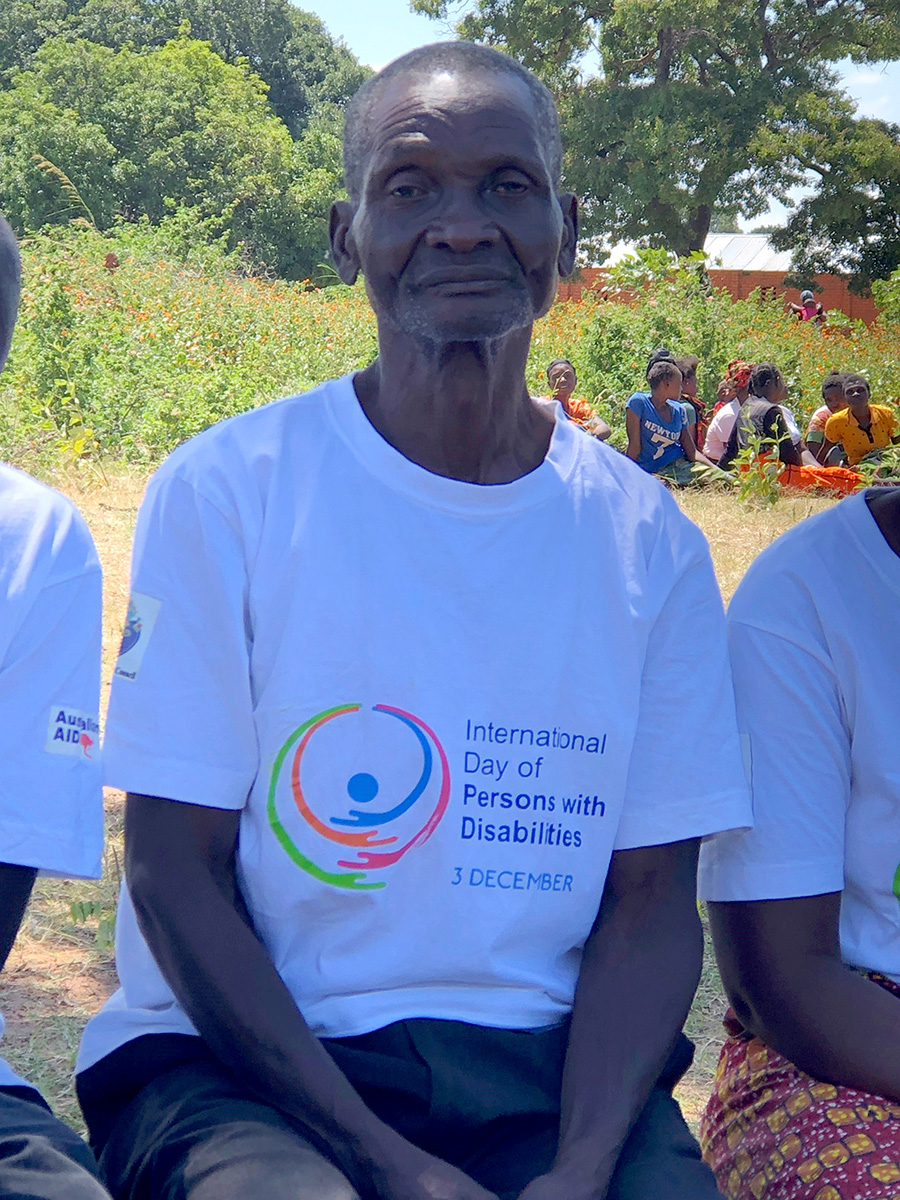
Village headman, Mr White Njovu, said that gender-based violence had reduced and more children were staying on at school. © ABM AID/Julianne Stewart.
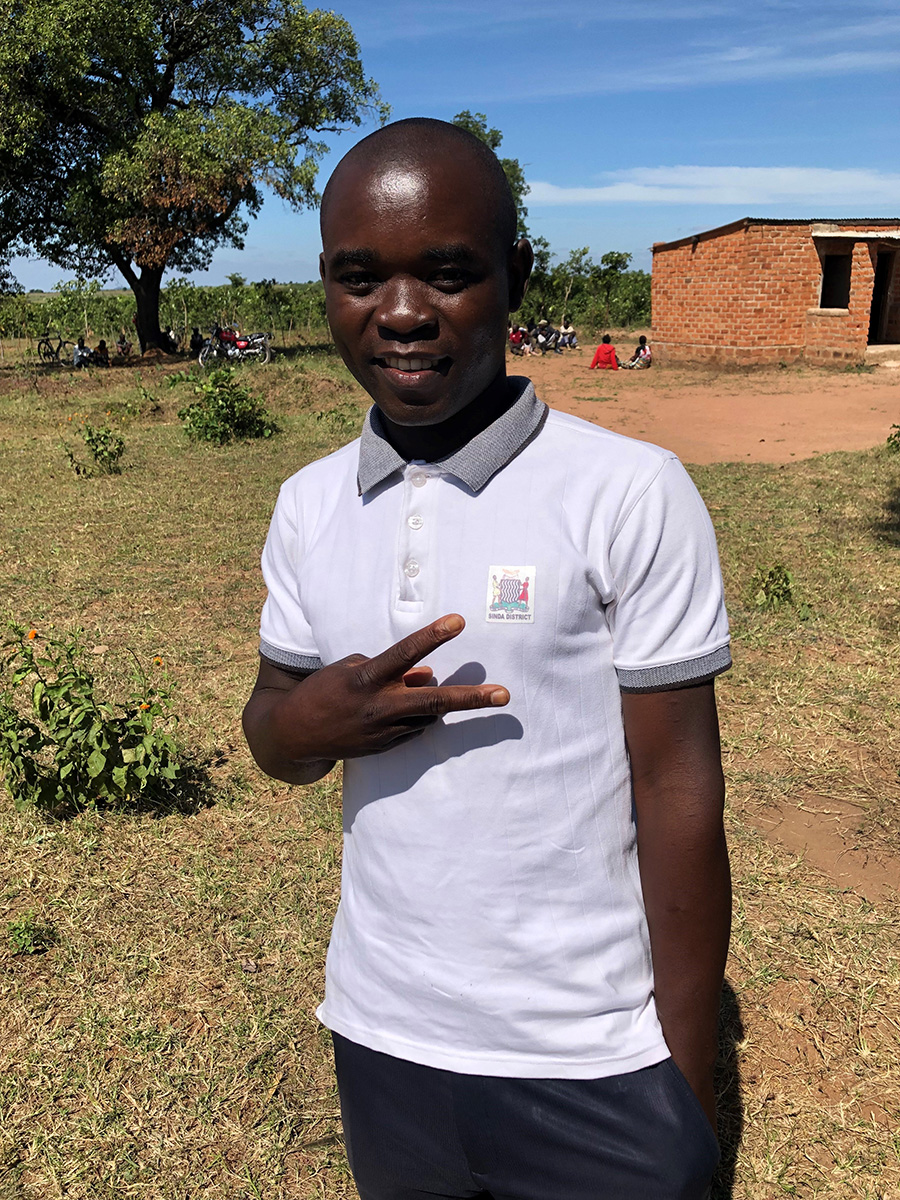
Clinic manager, Emmanuel Banda, provided data on the reduction of fighting within families. © ABM AID/Julianne Stewart.
